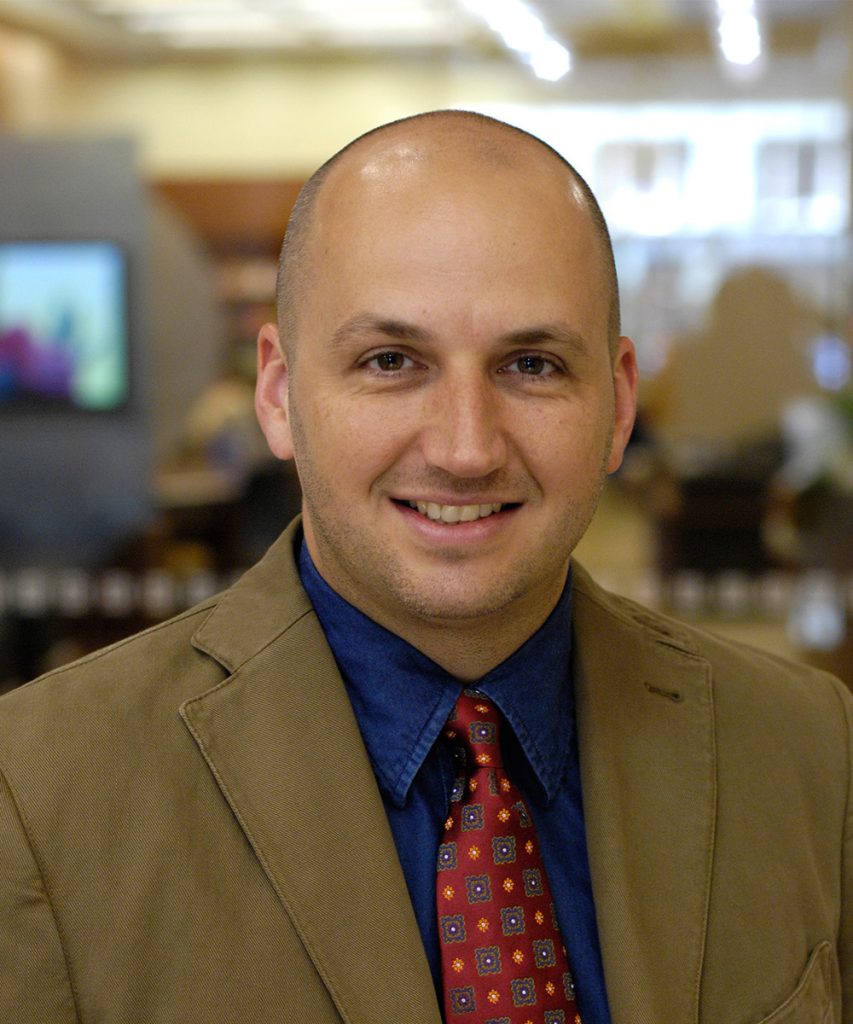
Adam Schrum
Associate Professor, Bioengineering, MMI, Surgery
Molecular Microbiology & Immunology, Surgery,
schruma@health.missouri.edu
573-771-7411
Research Emphasis
Our laboratory is focused on physiologic signaling networks and how they function in molecular and cellular immunity. A main goal is to increase understanding of how T cells of the immune system decide whether to destroy or tolerate healthy, infected or cancerous tissue, with an eye toward applying lessons learned to design immunotherapies. Current projects focus on the T cell antigen receptor (TCR) and how its structure, multi-subunit composition and biochemical functions operate throughout the course of immune responses. Downstream of TCR triggering, many other proteins and pathways involved in T cell signaling cooperate to compose a network with emergent properties to determine immune fate. Using cellular, molecular, biochemical and proteomic techniques, the lab examines these processes in the context of T cell responses during development, infection, autoimmunity and cancer. The team recently published a multiplex microsphere-based approach to generate a new type of combinatorial network signature of signaling proteins, termed PiSCES. Using this system, signaling protein network profiles were generated from small skin biopsy samples donated by autoimmune or control patients. A unique signature of T cell biochemical activity was identified to be associated with autoimmune lesions, an observation that may lead to identification of new molecular targets for therapy. A podcast explaining the significance of the work was commissioned and produced by the publisher (AAAS) and is freely available.
Research Interests
- Network protein complexes in signal transduction
- T cell development, immunity and tolerance
Education
- Post-doc 2007, University of Basel, University – Hospital, Switzerland
- Ph.D. 2002, PhD, University of Pennsylvania, School of Medicine
Selected Publications
Neier SC, Ferrer A, Wilton KM, Smith SEP, Huseby Kelcher AM, Pavelko KD, Canfield JM, Davis TR, Stiles RJ, Chen Z, McCluskey JM, Burrows SR, Rossjohn J, Hebrink DM, Carmona EM, Limper AH, Kappes DJ, Wettstein PJ, Johnson AJ, Pease LR, Daniels MA, Neuhauser C, Gil D, Schrum AG. The early proximal αβ TCR signalosome specifies thymic selection outcome through a quantitative protein interaction network. Sci Immun. 2019 Feb 15;4(32). pii: eaal2201. doi: 10.1126/sciimmunol.aal2201. PMID: 30770409
http://immunology.sciencemag.org/cgi/content/full/4/32/eaal2201?ijkey=OSDKaVWAeu1bI&keytype=ref&siteid=immunology
Schrum AG, Neier SC, VanHook AM. Science Signaling Podcast for 2 August 2016: Patient specific protein complexes. Sci Signal. 2016 Aug 2;9(439):pc17. doi: 10.1126/scisignal.aah5912. PMID: 27485014
http://stke.sciencemag.org/content/9/439/pc17.long
Smith SE, Neier SC, Reed BK, Davis TR, Sinnwell JP, Eckel-Passow JE, Sciallis GF, Wieland CN, Torgerson RR, Gil D, Neuhauser C, Schrum AG. Multiplex matrix network analysis of protein complexes in the human TCR signalosome. Sci Signal. 2016 Aug 2;9(439):rs7. doi: 10.1126/scisignal.aad7279. PMID: 27485017
http://stke.sciencemag.org/content/9/439/rs7?ijkey=5bd184f9f4dc78c7035d8e3f3d83c8fe7645025a&keytype2=tf_ipsecsha
Gilhar A, Schrum AG, Etzioni A, Waldmann H, Paus R. Alopecia areata: Animal models illuminate autoimmune pathogenesis and novel immunotherapeutic strategies. Autoimmun Rev. 2016 Jul;15(7):726-35. doi: 10.1016/j.autrev.2016.03.008. Epub 2016 Mar 10. Review. PMID: 26971464
https://www.sciencedirect.com/science/article/pii/S1568997216300568?via%3Dihub
Hoffmann MM, Molina-Mendiola C, Nelson AD, Parks CA, Reyes EE, Hansen MJ, Rajagopalan G, Pease LR, Schrum AG, Gil D. Co-potentiation of antigen recognition: A novel mechanism to boost weak T cell responses and provide immunotherapy in vivo. Sci Adv. 2015 Oct 2;1(9):e1500415. doi: 10.1126/sciadv.1500415. eCollection 2015 Oct. PMID: 26601285
http://advances.sciencemag.org/content/1/9/e1500415
